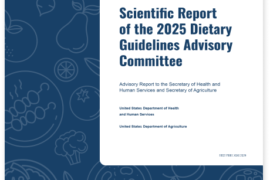Food manufacturers supplying the hospitality and healthcare markets in the United Kingdom are facing a financial cliff edge unless they receive urgent support from government, according to a coalition of 18 trade associations.
The group, led by the British Frozen Food Federation (BFFF), has written to the chancellor and other government ministers highlighting the fact that while pubs, restaurants and cafes have received extended financial support, the businesses that supply them have not.
BFFF Chief Executive Richard Harrow says that this issue was first raised with ministers in May of last year and that seven months later, many of the food producers are on the verge of going out of business, leaving many pubs, care homes, restaurants and hospitals with no one to supply them when the economy emerges from the pandemic.

The trade associations have asked for the following support to be put in place with immediate effect.
•Extend the 12-month Local Authority Business Rates exemption to businesses supplying into the hospitality and foodservice market, using the existing legislative exemption for hardship.
•Put in place ongoing capital and tax break allowances to maintain the workforce, prorated depending on how many staff a company can keep employed.
•Formalize the deferment of PAYE and NI payments until the end of 2021 for those in this sector, basing the final removal of that deferment on those businesses returning to a commercially viable level of operation.
•Increase the level of funding for the Additional Restrictions Grant and make the application process clear and the funding accessible.
•Provide grants for those companies that have had to dispose of fresh short life stock either through waste or charitable donations. These disposals have come about due to unplanned short notice restrictions related to lockdowns, that impact suppliers of perishable goods disproportionately.
“England’s national lockdown, plus restrictions in the UK’s other nations, have been devastating for our many businesses supplying the hospitality and foodservice markets and they are facing a bleak winter,” said Harrow. “Many of the ‘squeezed middle’ are often successful family-owned SMEs and are now facing collapse. Support for this important sector is vital to ensure they continue to manufacture and supply world leading products, making the market so dynamic and vibrant. Their continued existence will be critical as the economy starts to recover.”
He added: “Those businesses in the ‘squeezed middle’ have not been given the same level of government assistance as the businesses they supply, despite being as hard hit by the restrictions.”





